Deep Sahni
A Framework for Rationale Extraction for Deep QA models
Oct 09, 2021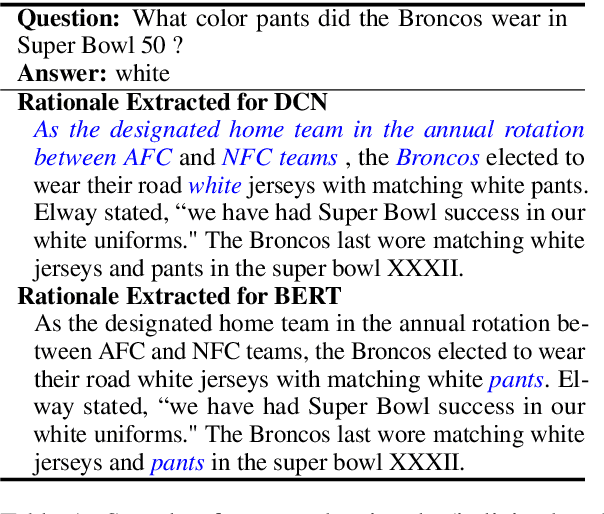
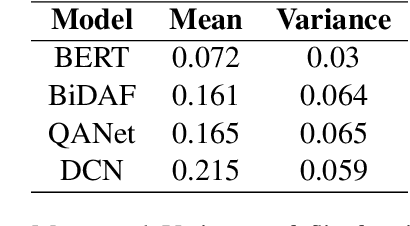
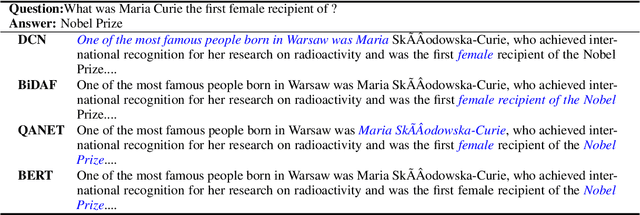
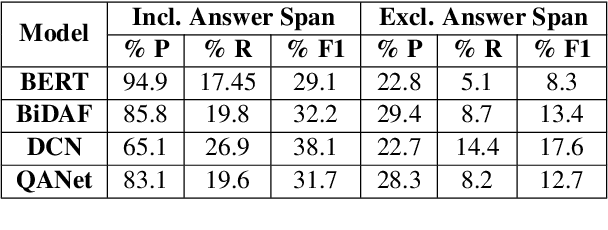
Abstract:As neural-network-based QA models become deeper and more complex, there is a demand for robust frameworks which can access a model's rationale for its prediction. Current techniques that provide insights on a model's working are either dependent on adversarial datasets or are proposing models with explicit explanation generation components. These techniques are time-consuming and challenging to extend to existing models and new datasets. In this work, we use `Integrated Gradients' to extract rationale for existing state-of-the-art models in the task of Reading Comprehension based Question Answering (RCQA). On detailed analysis and comparison with collected human rationales, we find that though ~40-80% words of extracted rationale coincide with the human rationale (precision), only 6-19% of human rationale is present in the extracted rationale (recall).
Towards Interpreting BERT for Reading Comprehension Based QA
Oct 18, 2020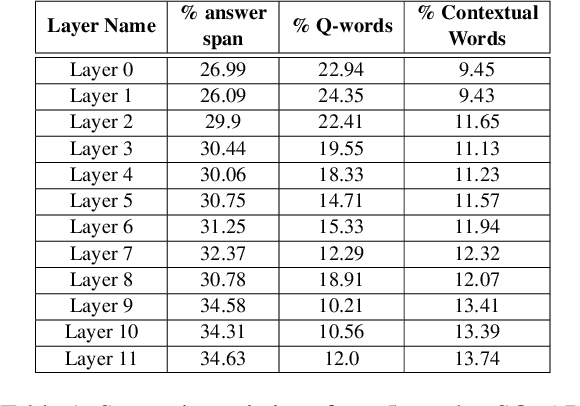
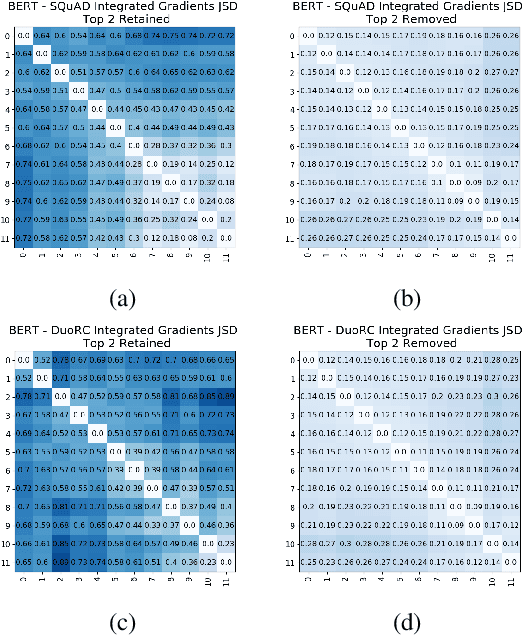
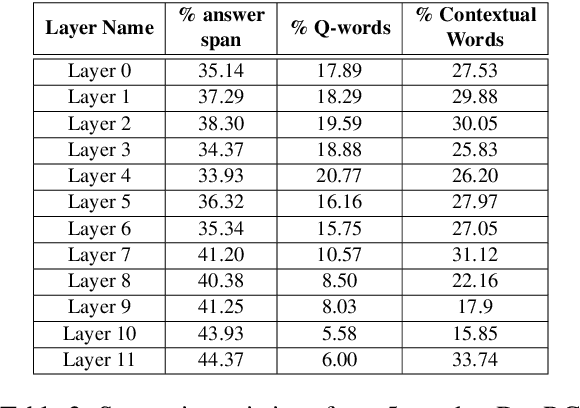
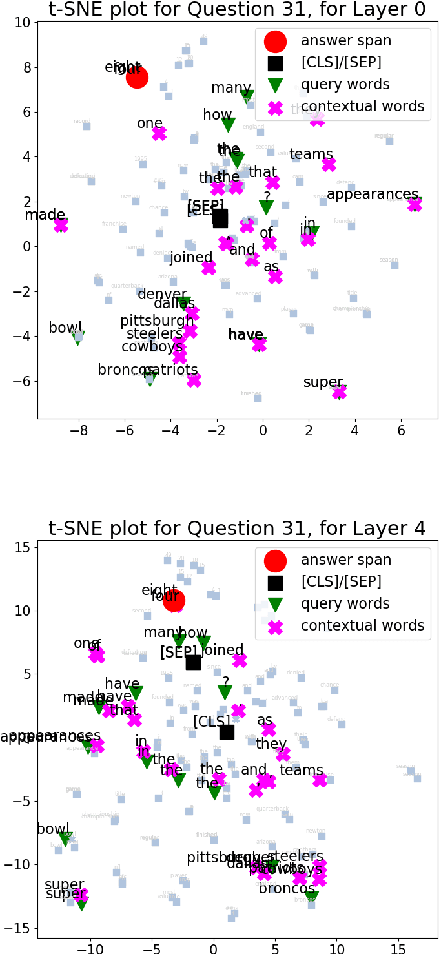
Abstract:BERT and its variants have achieved state-of-the-art performance in various NLP tasks. Since then, various works have been proposed to analyze the linguistic information being captured in BERT. However, the current works do not provide an insight into how BERT is able to achieve near human-level performance on the task of Reading Comprehension based Question Answering. In this work, we attempt to interpret BERT for RCQA. Since BERT layers do not have predefined roles, we define a layer's role or functionality using Integrated Gradients. Based on the defined roles, we perform a preliminary analysis across all layers. We observed that the initial layers focus on query-passage interaction, whereas later layers focus more on contextual understanding and enhancing the answer prediction. Specifically for quantifier questions (how much/how many), we notice that BERT focuses on confusing words (i.e., on other numerical quantities in the passage) in the later layers, but still manages to predict the answer correctly. The fine-tuning and analysis scripts will be publicly available at https://github.com/iitmnlp/BERT-Analysis-RCQA .
 Add to Chrome
Add to Chrome Add to Firefox
Add to Firefox Add to Edge
Add to Edge